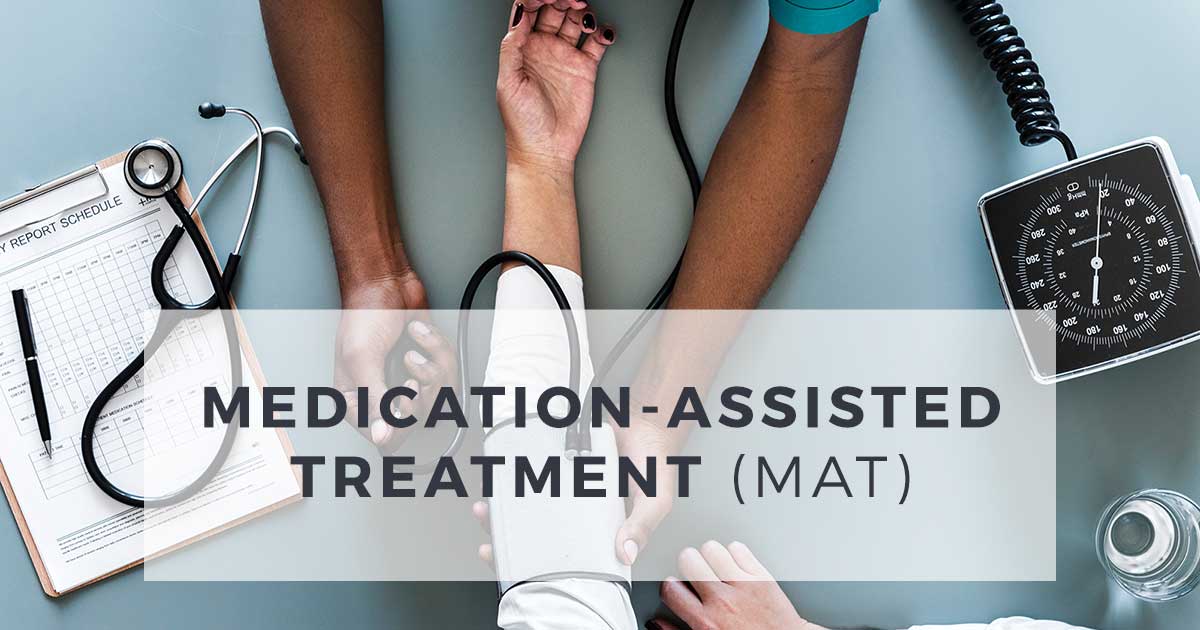
Medications for Addiction Treatment (MAT)
Medication-assisted treatment (MAT) helps many people recover from certain types substance use disorders (SUDs). If you or someone you care about are struggling with alcohol or opioid addiction, you may be interested in learning more about how MAT can help you make progress in recovery.
What Are Medications for Addiction Treatment?
As would be expected given the name, medications are an indispensable element of MAT methods—but they aren’t the only component of such treatment. Instead, MAT entails a combined approach to treat substance use disorders. MAT combines pharmacological treatment (medications) with behavioral treatment that is tailored to a patient’s unique needs. Many people have been helped in recovery through this whole-patient-focused approach. In its various forms, MAT may effectively minimize cravings, block some of the rewarding properties of certain substances, and ultimately decrease drinking and continued substance use behavior. The goal of MAT is full recovery; however, MAT has also been shown to:
• Increase patient survival rates.
• Increase treatment retention rates.
• Decrease criminal activity related to opioid use and other drug use.
• Increase patients’ abilities to gain or maintain employment.
MAT is a comprehensive approach to treatment; in its various phases, it incorporates strategies to address several components of your life, including vocational issues, medical and mental health concerns, family issues, and legal concerns through monitoring, support, screening, referrals, and counseling.
MAT was originally designed to treat opioid use disorder (OUD) in the 1960s when methadone maintenance was developed as one of the key forms of treatment for this problem. Federally-funded treatment programs emerged in the 1970s; the term “maintenance treatment” (referring to medication-assisted treatment) was first used in the Narcotic Addict Treatment Act of 1974.
MAT may also consist of or occur alongside different behavioral interventions, such as:
• Cognitive-behavioral therapy (CBT) to help individuals identify and change unhelpful behaviors and thoughts about themselves and their addiction.
• Contingency management (CM) to help individuals stay motivated by providing tangible rewards (like vouchers for goods) for positive changes.
• Community reinforcement approach (CRA) to help identify the reasons for wanting to make changes in one’s life and find healthier ways of coping with stress and other triggers to misuse substances.
• Motivational enhancement (ME) to help individuals engage and stay motivated in treatment.
• Group therapy. This can include a variety of groups, such as psycho-educational, skills development, cognitive-behavioral, interpersonal process, or support groups.
